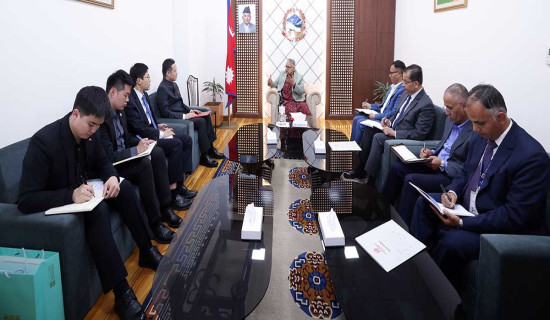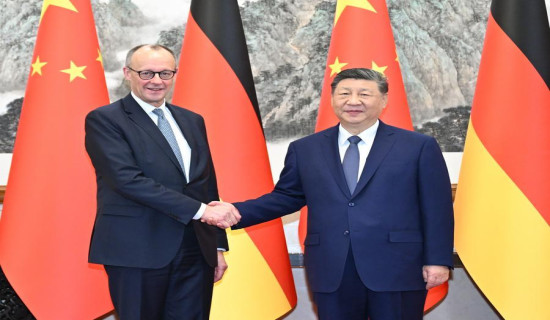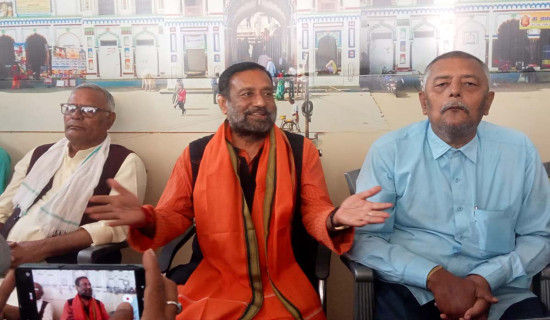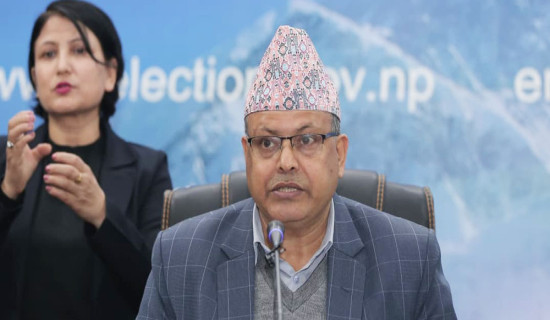- Saturday, 28 February 2026
Dr Yunus: From teacher to head of Bangladesh govt
By Golam Mowla, Bangladesh, Aug 9: Muhammad Yunus began his professional life as a teacher before transitioning into a social entrepreneur, eventually earning a Nobel Prize. He also nearly faced imprisonment: on Monday, a court in Dhaka was set to try Dr Muhammad Yunus, where he could have received a life sentence for alleged corruption.
Dhaka Tribune wrote that within just two days, his fate took a dramatic turn. Instead of facing trial, he was appointed as the head of Bangladesh's interim government. On Thursday, he was sworn in as the chief Advisor of the interim government at Bangabhaban.
Dr. Muhammad Yunus, a Nobel Peace Prize laureate, is internationally recognized for his “Three Zeros” theory, which aims to eliminate poverty, unemployment and carbon emissions.
Analysts believe he will seek to advance the interim government through the application of this sustainable development theory, emphasizing youth, technology, good governance and social business.
The pioneer of the microcredit concept, Dr Yunus established Grameen Bank while still a teacher and later, in 2006, shared the Nobel Peace Prize with the bank.
Dr Yunus has received 61 honorary degrees from universities in 24 countries and 136 accolades from 33 countries, including 10 national honours.
He is one of only seven individuals to have received the Nobel Peace Prize, the United States Presidential Medal of Freedom and the US Congressional Gold Medal.
Beyond these, he has also received several royal honours from various European countries.
While he earned global recognition, Dr Yunus faced tough battles in his home country, losing control of Grameen Bank, the institution he had founded.
In 1996, Dr Muhammad Yunus served as an advisor of the caretaker government led by former Chief Justice Muhammad Habibur Rahman. He was responsible for the Ministry of Primary and Mass Education, the Ministry of Science and Technology, and the Ministry of Environment and Forests.
Just five months after winning the Nobel Prize, he surprised everyone by initiating the formation of a political party. This move came at a time when the "minus two” formula was widely discussed during the military-backed caretaker government of 2007, which sought to sideline Sheikh Hasina, president of the Awami League, and Khaleda Zia, the leader of the BNP, from politics.
After Hasina's government was formed in 2009, Professor Yunus lost control of his bank and had to appear in court repeatedly in various cases. He also faced the threat of arrest.
Early life and education
Muhammad Yunus was born on June 28, 1940, in the village of Bathua, Hathazari, Chittagong, in the Bengal Presidency of British India (now Bangladesh). He was the third of nine siblings. His father, Haji Dula Mia Saudagar, was a jeweller, and his mother's name was Sufia Khatun. His early childhood was spent in the village. In 1944, his family moved to Chittagong city, and he transferred from his village school to Lamabazar Primary School.
Around 1949, his mother began suffering from mental illness. He later graduated from Chittagong Collegiate School, placing 16th out of 39,000 students in East Pakistan in the matriculation exams, before enrolling in Chittagong College.
During his school years, he was an active Boy Scout. While studying at Chittagong College, he also became involved in cultural activities. In 1957, he enrolled in the Department of Economics at Dhaka University, completing his BA in 1960 and MA in 1961.
Professional life
After finishing his undergraduate studies, Yunus joined the Bureau of Economic Research as a research assistant under Nurul Islam and Rehman Sobhan. Later, in 1961, he was appointed as a lecturer in economics at Chittagong College. Simultaneously, he established a profitable packaging factory.
In 1965, he received a Fulbright scholarship to study in the US. In 1971, he earned his PhD in economics from Vanderbilt University’s graduate program in economic development. From 1969 to 1972, Yunus served as an assistant professor of economics at Middle Tennessee State University in Murfreesboro.
Returning to Bangladesh in 1972, he joined the Department of Economics at Chittagong University as an associate professor and served as the head of the department. He was promoted to professor in 1975 and held the position until 1989.
During this period, in 1976, he founded Grameen Bank, which became globally renowned for its microcredit model.
From Jobra village to Nobel laureate
In 1976, in the village of Jobra in Chittagong, Dr Yunus initiated what would become Grameen Bank.
At the time, Professor Yunus, head of the "Rural Economics Program" at CU, began field research in Jobra and nearby villages to assess the feasibility of providing bank loans to the poorest members of society. Initially, he started a farm project under the "Tebhaga" system called "Nobozug Tebhaga Khamar." This farm laid the foundation for Grameen Bank in 1976.
On October 2, 1983, Grameen Bank was formally established as a full-fledged bank in Bangladesh, introducing the completely new concept of "microcredit." The bank primarily offers small loans to landless and impoverished women, organized in groups of five, to create employment through these loans.
As the bank's reach expanded, it adopted additional measures to protect the poor, including housing loans, fish farming and irrigation projects.
Inspired by Grameen Bank's formula for economic development, other industrialized nations, including the United States, also began to adopt similar strategies.
As Grameen Bank's activities gained international recognition, Dr Yunus and the bank jointly received the Nobel Peace Prize in 2006.
In addition, in February 2011, Yunus co-founded Yunus Social Business with Saskia Bruysten, Sophie Eisenmann and Hans Reitz. This initiative empowers social businesses worldwide to solve social problems through the creation and empowerment of social enterprises. As the international implementation branch of Yunus's new, humane capitalism, this social business provides incubator funds for social business in developing countries and offers consultancy services to companies, governments, foundations and NGOs.
In 2012, he was appointed chancellor of Glasgow Caledonian University in Scotland, a position he held until 2018.
Proposal to lead caretaker govt
On January 11, 2007, a caretaker government led by Fakhruddin Ahmed and supported by the military was formed, with General Moeen U Ahmed as the army chief. The caretaker government, along with the military chief, sought to implement a "minus two” formula that aimed to exile or detain the leaders of the BNP and Awami League and establish a new government to run the country. During this time, the military asked Yunus to take on the role of head of the caretaker government, but he declined.
In response to the situation, Yunus initiated the formation of a political party called Nagorik Shakti. However, he later withdrew from this process.
National, international recognition
Dr Yunus has been recognized not only in the field of economics but also in various other domains. He was a distinguished guest at the opening ceremony of the 2020 Olympics, the world’s largest competition. The main theme of the 2024 Paris Olympics is also based on Professor Yunus's social business theory.
In addition to the Nobel Peace Prize in 2006, he received the US Presidential Medal of Freedom in 2009 and the Congressional Gold Medal in 2010.
From 1978 to 2021, Dr Yunus received approximately 145 national and international awards, including the Ramon Magsaysay Award (1984), Independence Day Award (1987), Aga Khan Award for Architecture (1989), World Food Prize, US (1994), International Simon Bolivar Prize (1996), Help for Self Help Prize, Norway (1997), Man for Peace Award, Italy (1997), Sydney Peace Prize, Australia (1998) and Indira Gandhi Prize, India (1998).
Issues with Awami League
When Muhammad Yunus was awarded the Nobel Prize in 2006, Grameen Bank also received the prize. At that time, the opposition Awami League was among the first to extend congratulations. However, after coming to power in 2009, the Awami League, under then-prime minister Sheikh Hasina, began accusing Yunus of various misdeeds. This began with his removal from the position of managing director of Grameen Bank through a Bangladesh Bank order.
On March 2, 2011, Bangladesh Bank issued an order removing Dr Yunus from the position of the Grameen Bank chief. Yunus and nine directors of Grameen Bank filed two writ petitions against this decision. Both petitions were dismissed by the High Court, upholding the central bank's order. On May 12 of that year, Yunus resigned from his position as managing director.
Supporters of the government took control of several institutions, including Grameen Shakti, founded by Dr Yunus. He was repeatedly accused of embezzlement, violating labour rights and even tax evasion, despite bringing his earnings from overseas speeches into the country through legal, tax-exempt channels.
Hasina's animosity towards Dr Yunus has been widely discussed internationally.
Despite calls from influential figures, heads of state and government, and Nobel laureates worldwide to stop the judicial harassment against him, the government did not heed these appeals.
Over the past decade and a half, 168 cases were filed against Dr Muhammad Yunus and his institutions, including one in a criminal court, one with the Anti-Corruption Commission and the remaining 166 cases pending in Dhaka's Third Labour Court.
Most recently, on August 4, the High Court ruled that Dr Yunus must pay Tk666 crore to the National Board of Revenue. However, after being named the head of the interim government, this penalty was waived.

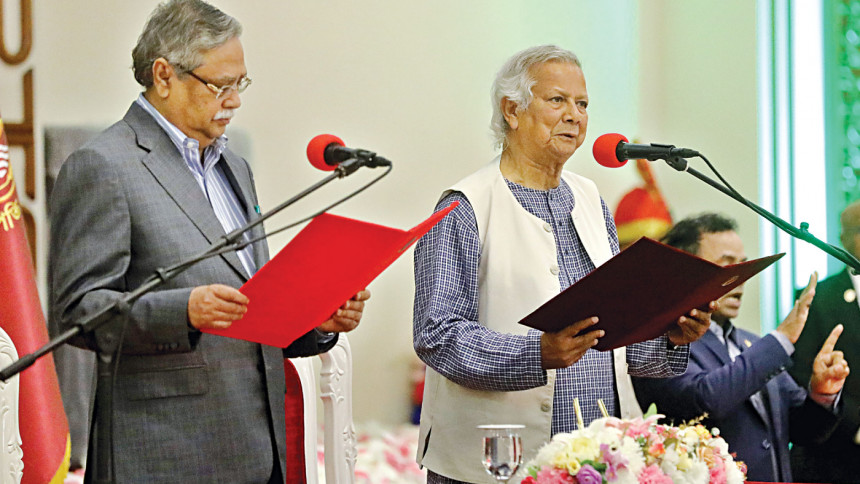

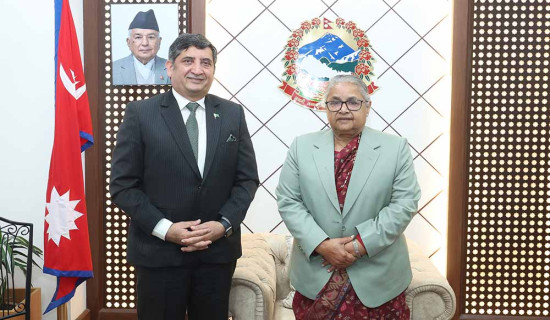
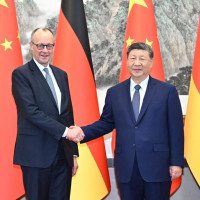
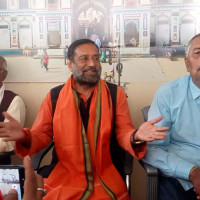

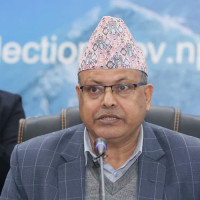

-original-thumb.jpg)

